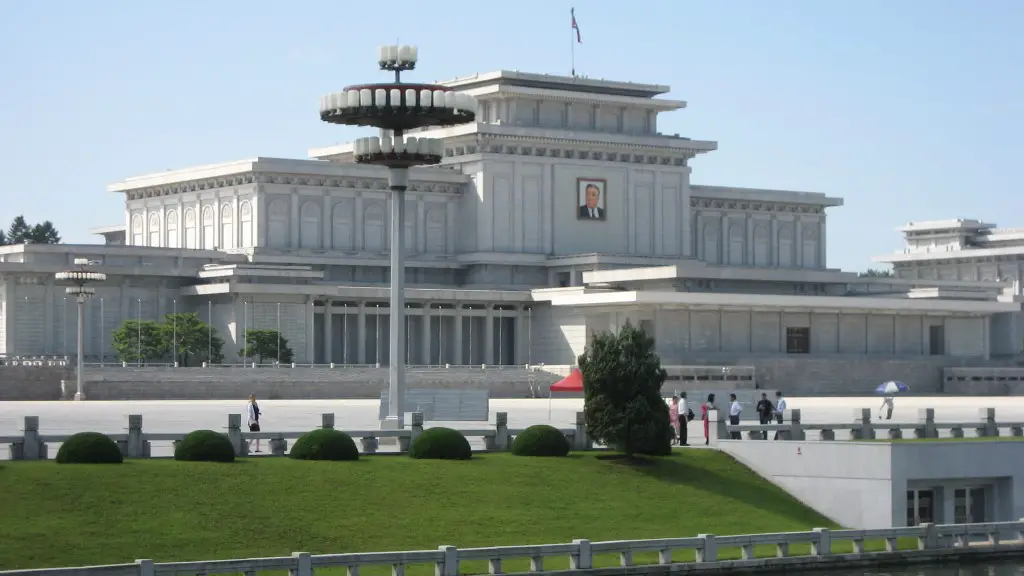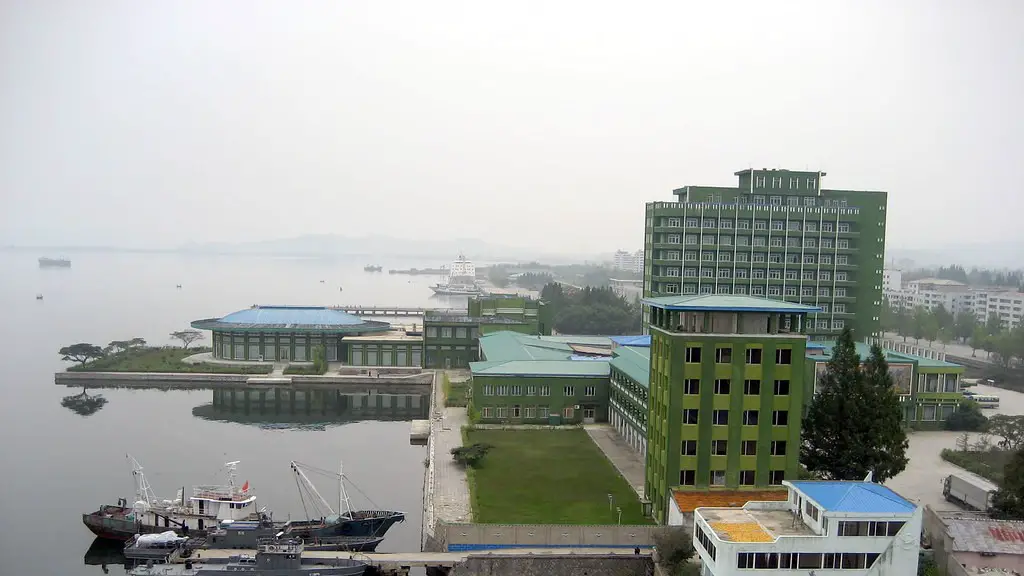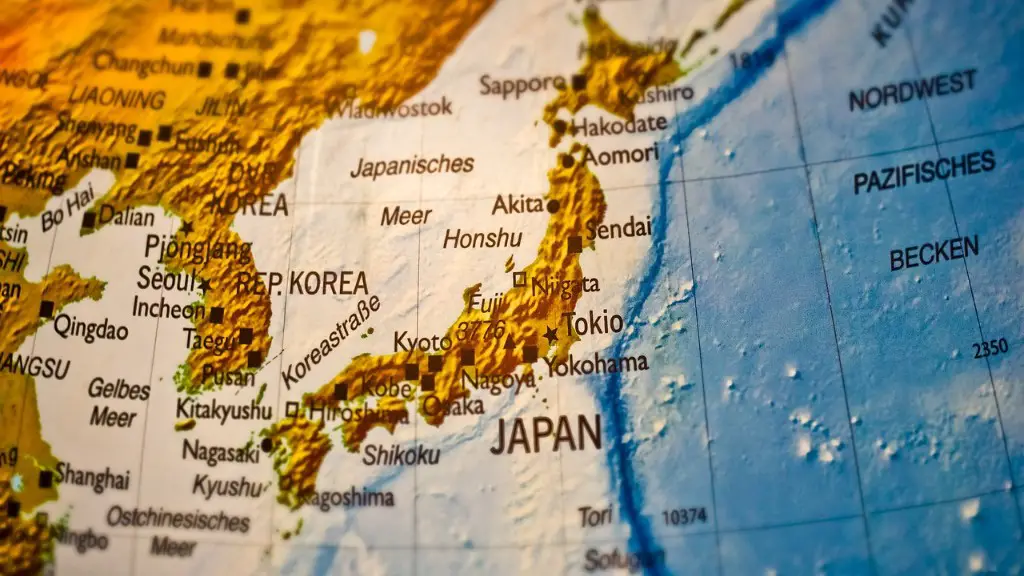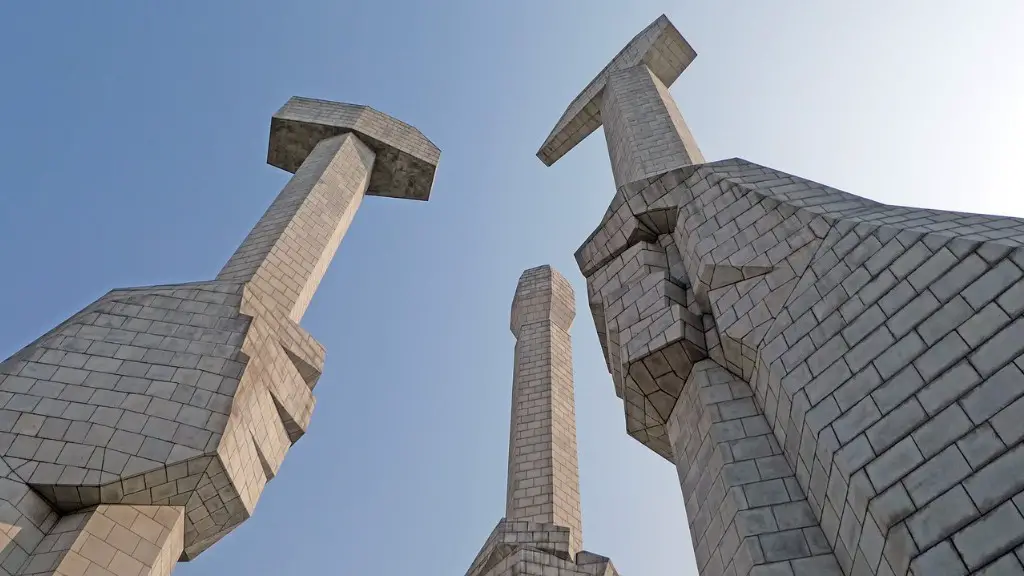Historical Overview
The conflict on the Korean Peninsula erupted on June 25, 1950, when North Korean forces invaded South Korea. Both sides in the conflict had powerful allies backing them up from abroad. The North had support from China and the Soviet Union, while South Korea relied on the United Nations for help. The Korean War was a conflict between two ideologies and superpowers of the time, a clash of titan forces. The Soviet Union provided support to the North Korean forces through a variety of means including troops, airpower, and material.
The Soviet Union, under leader Joseph Stalin, had established a power base in Eastern Europe and across the world following the end of World War II. It had also become increasingly pro-Communist, something Stalin felt was the way of the future. The Soviets had a close relationship with North Korea, with both countries adopting similar political systems, and Stalin viewed the North Korean aggression as an opportunity to cause more disruption in the world order.
Propaganda was rampant in the Soviet Union at the time, extolling the virtues of Communism and vilifying anyone who disagreed with the ideology. This made it easy for Stalin to convince the people of Russia to support North Korea, and the Soviet Union was happy to provide them with the military backing they needed. Stalin used the Korean War as a means of spreading Communism throughout the region, and used the conflict as a proxy war against the West.
Economic Factors
In addition to ideological motivations, Stalin had economic reasons for backing North Korea. The Soviet Union had already established a foothold in the region, and provided North Korea with economic and military aid. This was beneficial to both countries, as it allowed the Soviet Union to extend its influence in the region, while North Korea benefited from the economic and military support.
The Soviet Union also profited economically from the Korean War. It sold weapons and other equipment to North Korea, as well as providing technical assistance in the form of Soviet advisors. This helped to boost the Soviet economy, while also giving them a strategic foothold in a region of strategic importance. The Soviets had been involved in the Korean Peninsula since 1945, and with the outbreak of the Korean War, it was an opportunity for them to strengthen their grip on the region.
Furthermore, North Korea was an attractive prospect for the Soviet Union due to its relative stability and its proximity to the Chinese border. It was in a prime location for the Soviets, who wanted to contain Chinese influence in the region. North Korea’s pro-Communist stance also made it a useful ally for the Soviets, as they could rely on the North to support their objectives in the region.
Political Impact
It is important to consider the political implications of the Soviet Union’s involvement in the Korean War. The Soviet Union had already established itself as a major player in the international arena, and the Korean War was an opportunity for them to gain more notoriety. The Soviets viewed the Korean War as an important way to spread their ideology and gain more international prestige.
The Soviets were successful in their mission to spread Communism, as North Korea was transformed from an agricultural economy to a nuclear-armed state. This showed that the Soviet Union was capable of projecting its influence throughout the world, even in the face of opposition from the United States and other Western powers. The war also showed that the Soviets could rely on their allies to further their ambitions, and that their military power was a force to be reckoned with.
Moreover, the war was beneficial to the Soviet Union politically in the sense that it highlighted the United States’ fault in the Korean War. The US had initially supported South Korea during the conflict, but later withdrew support. This reinforced the Soviet narrative that the US was unreliable and ineffectual in wartime, a message that was not lost on the communist and non-communist nations of the world.
Contemporary Perspective
Today, Russia continues to support North Korea, although their relationship has changed significantly since the Korean War. North Korea is still nominally a Communist state, although it has become increasingly isolated from the rest of the world in the last few decades. Russia, meanwhile, has gone through a major transformation since the fall of the Soviet Union, shifting from a hardline Communist nation to a capitalist state.
Today, Russia is still an ally of North Korea, and has sought to maintain its ties to the isolated nation. This has been done through a number of economic and political means, including energy and food aid, as well as the provision of technology and expertise. Russia is also a major proponent of dialogue between the US and North Korea, in a bid to bring an end to the tension and instability in the region.
When it comes to the nuclear issue, Russia has sought to make diplomatic overtures to North Korea in an attempt to reduce tensions. They have also sought to work with the United States, China, and other nations in an effort to denuclearize the region and promote stability. Ultimately, Russia wants a secure and stable North Korea, as it is in their strategic interests.
Relationship With The US
Russia’s relationship with the United States has been strained since the end of the Cold War, with tensions often running high between the two great powers. However, the two nations have come together in recent years in an effort to address the North Korean nuclear threat, a development that has been welcomed by the international community.
The US and Russia have found common ground on the issue of denuclearization, and have reached out to North Korea in a bid to curb their nuclear ambitions. This has been supported by China as well, who has sought to apply diplomatic pressure on North Korea to reduce its nuclear weapons program.
Ultimately, the US and Russia are determined to find a peaceful solution to the North Korean nuclear issue, and for now at least it appears the two powers are making progress. This could potentially pave the way for improved relations between the two great powers, although there is still a long road ahead.
Geopolitical Implications
The impact of Russia’s support of North Korea during the Korean War cannot be overstated. Not only did it help to launch North Korea on the path towards becoming a nuclear-armed state, but it also cemented the Soviet Union as a major world power. The Korean War was a major flashpoint in world history, and the fact that the Soviets were able to support their ally in the conflict showed the rest of the world their military capabilities.
The historical implications of the Cold War are still felt today, with Russia and the United States maintaining an uneasy peace. The Korean War was a major part of this, and it showed how two ideologically opposed nations can still work together for the common good. While tensions between the two sides continue to exist, it is clear that there still exists the potential for cooperation in certain areas.
The Korean War also had implications for the rest of the world. It was a major conflict in a region of strategic importance, and it showed that powerful nations can still find common ground in the face of adversity. The conflict also served as a reminder that conflict should be avoided wherever possible, and that diplomacy is the best way to resolve international disputes.
Conclusion
In conclusion, the reasons why Russia supported North Korea in the Korean War were both ideological and economic. Ideologically, Stalin saw the conflict as a way to spread Communism, while economically the Soviets benefited from weapons sales and otherforms of aid. Politically, the Soviet Union was able to portray themselves as a major player in the international community, and the war showed that the Soviets could rely on their allies when needed.
The war also had ramifications for the rest of the world. It showed that two ideological opponents could still cooperate for the greater good, and it demonstrated the potential for dialogue and diplomacy in solving conflicts. The conflict also served as a lesson to the world, a reminder to avoid war wherever possible and to instead work towards peaceful solutions.





